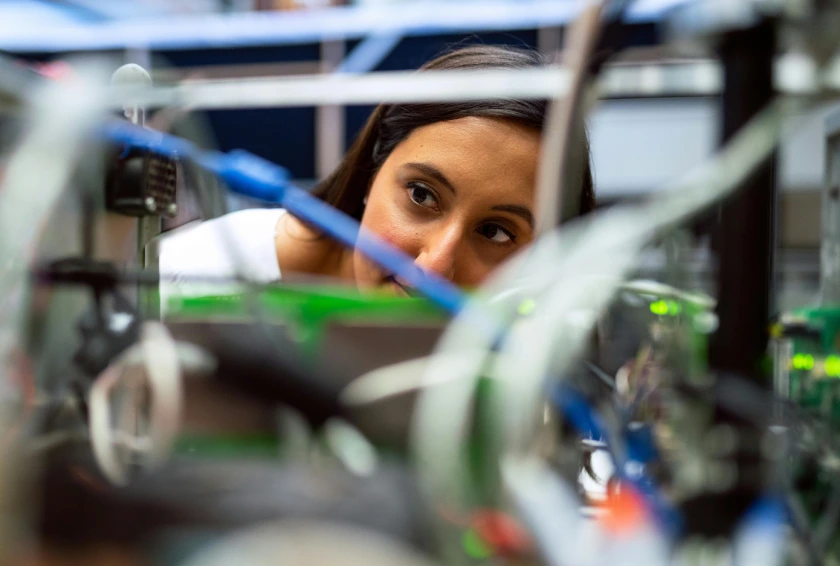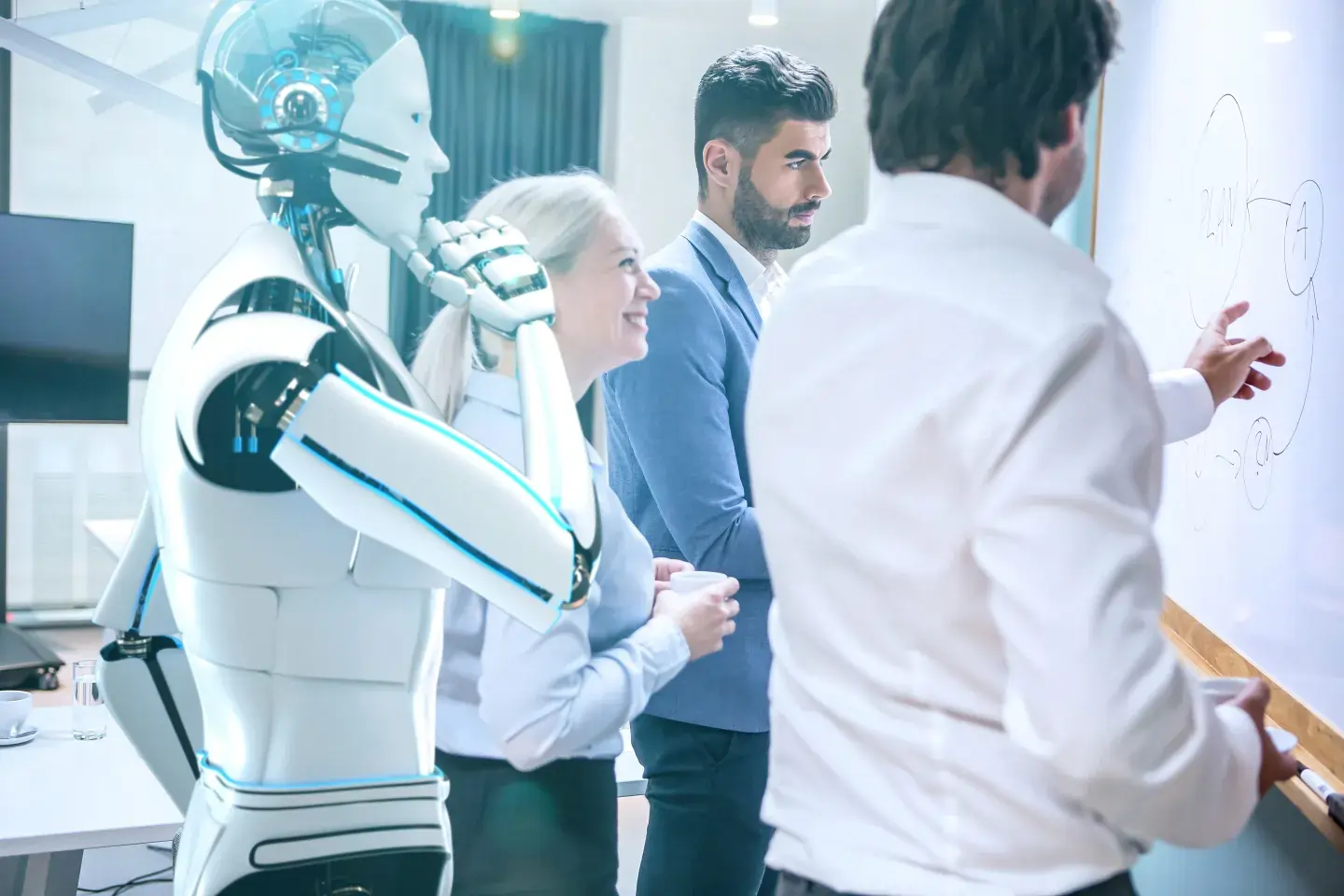How Agentic AI is Revolutionizing Manufacturing in 2025

The manufacturing industry is undergoing a seismic transformation. With increasing demands for efficiency, agility, and resilience, companies are embracing cutting-edge technologies to stay competitive. At the forefront of this transformation is Agentic AI—a new breed of autonomous, intelligent systems capable of making decisions, taking actions, and optimizing operations without constant human oversight.
As manufacturers across the globe strive to modernize their operations, Agentic AI is becoming a game-changer. From predictive maintenance and production optimization to supply chain management and quality control, this powerful technology is unlocking value across the entire manufacturing lifecycle.
What is Agentic AI?
Agentic AI refers to artificial intelligence systems designed to behave like autonomous agents. These systems:
- Perceive their environment through sensors or data streams,
- Reason about their goals using internal logic or machine learning,
- Take actions to fulfill those goals, often coordinating with other agents or human operators.
Unlike traditional automation, which follows rigid, rule-based logic, agentic AI can learn, adapt, and self-direct based on real-time feedback. This makes it uniquely suited for dynamic, high-variance environments like manufacturing.
Why Agentic AI is Ideal for Manufacturing
Manufacturing involves complex, interdependent systems—from raw materials and machinery to human labor and logistics. Agentic AI thrives in this ecosystem because it can:
- Autonomously manage workflows, reducing human intervention
- Continuously optimize processes, improving efficiency
- Respond to variability and disruptions in real time
- Scale easily across production lines and facilities
By embedding intelligence into machines and systems, manufacturers are building smart factories capable of self-regulation, learning, and evolution.
Key Applications of Agentic AI in Manufacturing
1. Predictive Maintenance and Equipment Monitoring
Unplanned downtime is a costly issue in manufacturing. Agentic AI mitigates this by monitoring machinery health and autonomously scheduling maintenance.
- Sensor-based Monitoring: AI agents analyze data from IoT sensors on motors, bearings, and valves to detect wear and predict failure.
- Automated Alerts and Workflows: When potential issues are detected, the agent triggers alerts, orders replacement parts, and schedules technician time—all without human input.
- Continuous Learning: Agents adapt their models based on real maintenance outcomes, improving prediction accuracy over time.
2. Production Line Optimization
Manufacturing lines must constantly balance speed, quality, and cost. Agentic AI enables real-time optimization.
- Dynamic Scheduling: AI agents reschedule production tasks in response to machine availability, order changes, or supply delays.
- Bottleneck Elimination: Systems identify constraints in real time and reconfigure workflows to maintain throughput.
- Autonomous Process Control: Parameters like temperature, pressure, or speed are adjusted automatically based on continuous input data.
3. Supply Chain Automation and Resilience
Global supply chains are vulnerable to disruption. Agentic AI introduces robustness through autonomous decision-making.
- Intelligent Procurement Agents: Place and track orders, manage vendors, and adapt sourcing strategies based on availability and price.
- Inventory Optimization: Continuously adjust stock levels based on demand forecasts and real-time consumption.
- Logistics Coordination: AI agents monitor shipment data and reroute deliveries in case of delays or shortages.
4. Quality Control and Defect Detection
Maintaining consistent quality is essential in manufacturing. Agentic AI enhances quality assurance by detecting and responding to defects in real time.
- Visual Inspection: AI vision agents scan components for microscopic flaws, anomalies, or inconsistencies.
- Adaptive Feedback Loops: Defects trigger immediate changes to machine settings or halt production to prevent further waste.
- Statistical Process Control: AI analyzes production trends to predict and prevent out-of-spec outputs.
5. Human-Robot Collaboration on the Factory Floor
Agentic AI is bridging the gap between humans and machines with smarter, more flexible robots.
- Collaborative Robots (Cobots): Equipped with agentic intelligence, cobots adjust their behavior based on the actions, speed, and position of nearby workers.
- Task Delegation: Agents take on repetitive or dangerous tasks while human workers focus on high-value operations.
- Safety Monitoring: Real-time environmental sensing allows cobots to react instantly to ensure worker safety.
6. Sustainable Manufacturing and Energy Optimization
Sustainability is a growing priority. Agentic AI helps reduce waste and energy consumption.
- Energy Agents: Monitor and regulate power usage across machines, turning off idle equipment and optimizing energy-intensive processes.
- Waste Reduction: Analyze material usage patterns and propose alternative production methods or recycling loops.
- Carbon Tracking: Track emissions in real-time, helping companies meet environmental regulations and goals.
Business Benefits of Agentic AI in Manufacturing
The impact of agentic AI extends beyond operational improvements—it delivers measurable business outcomes:
- Reduced Downtime: Predictive maintenance alone can save millions annually by avoiding unexpected outages.
- Higher Throughput: Real-time optimization ensures maximum efficiency across production lines.
- Improved Product Quality: Early defect detection minimizes recalls and waste.
- Cost Savings: Fewer manual interventions, better resource use, and optimized energy consumption reduce overall expenses.
- Increased Agility: Rapid reconfiguration in response to market or supply changes enables manufacturers to stay competitive.
Challenges and Considerations
1. Integration Complexity
Implementing agentic systems requires integrating AI with legacy equipment, ERP systems, and IoT platforms.
2. Data Governance
Agents need access to high-quality, real-time data to function effectively. Ensuring data accuracy and security is essential.
3. Human Oversight
While autonomous, agentic systems still benefit from human-in-the-loop design, especially in critical decision-making scenarios.
4. Change Management
Introducing AI agents often requires cultural shifts in operations and workforce retraining.
The Future of Agentic AI in Manufacturing
Looking ahead, agentic AI will evolve beyond factory automation to serve as digital twins, product designers, and supply chain strategists.
- Multi-Agent Collaboration: Dozens or even hundreds of agents may work together across plants, departments, and geographies.
- Self-Healing Systems: Factories that detect, diagnose, and resolve their own issues—without manual input.
- AI-Designed Manufacturing Lines: Systems that learn from outcomes to suggest better configurations or workflows.
In the long term, agentic AI won’t just support manufacturing—it will co-create with human engineers and planners, fundamentally reshaping industrial strategy.
Conclusion
Agentic AI is revolutionizing manufacturing by enabling intelligent, autonomous decision-making across every layer of production. From maintenance and quality control to supply chain logistics and energy optimization, manufacturers are seeing tangible ROI from deploying these systems. As the technology matures, its integration will be essential for companies seeking to build resilient, agile, and sustainable operations in the years ahead.
If you're in the manufacturing industry, now is the time to explore how Agentic AI can give you a competitive edge in a fast-changing world.



